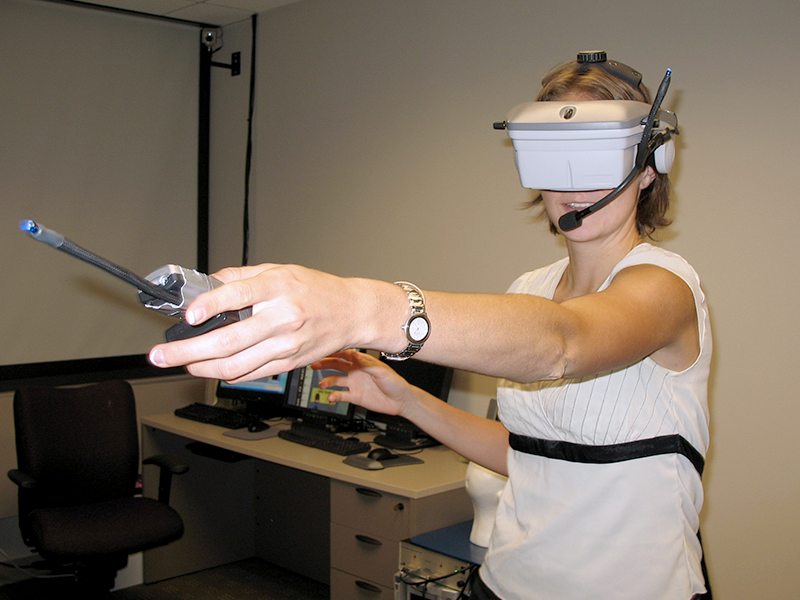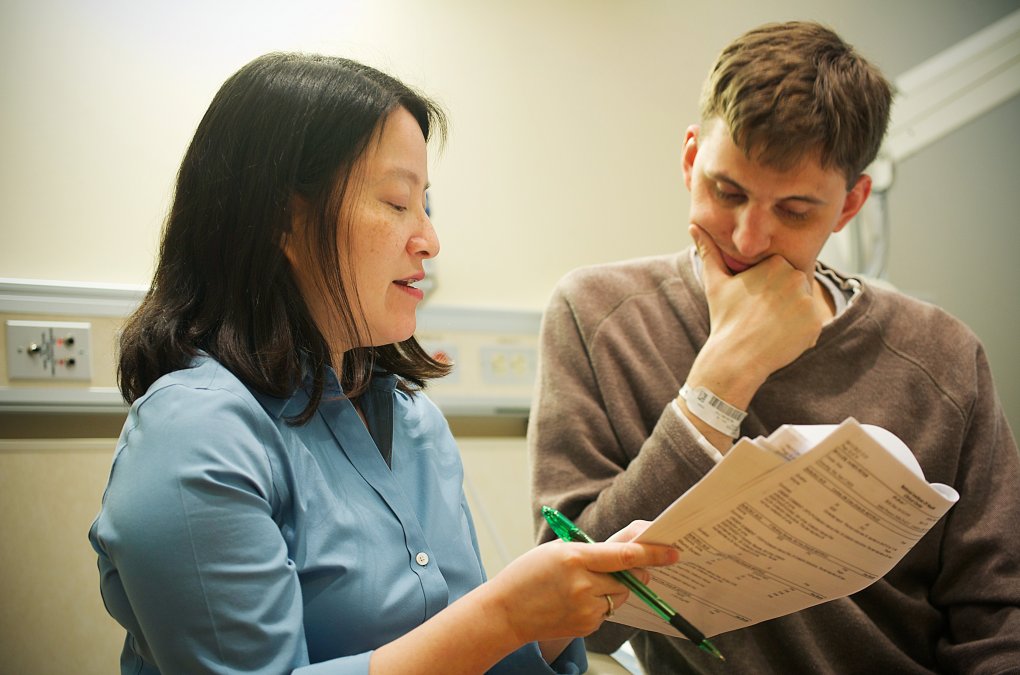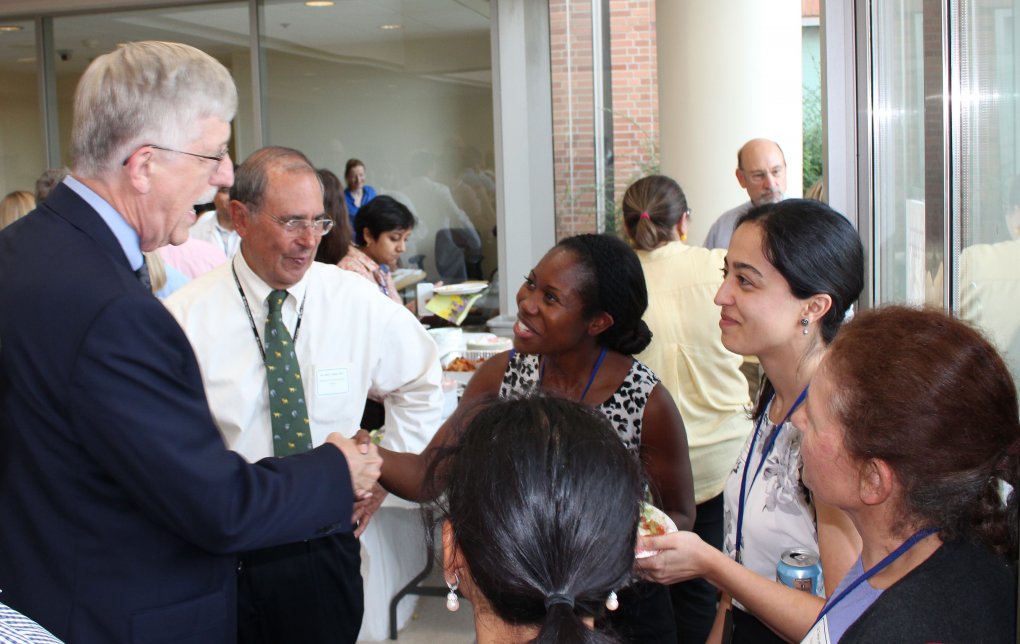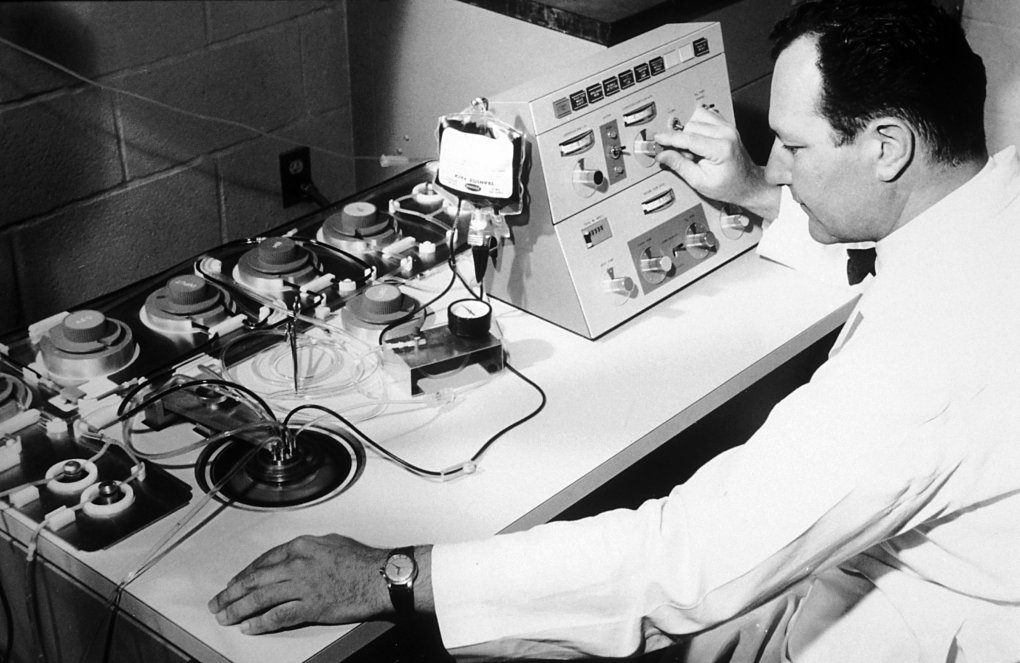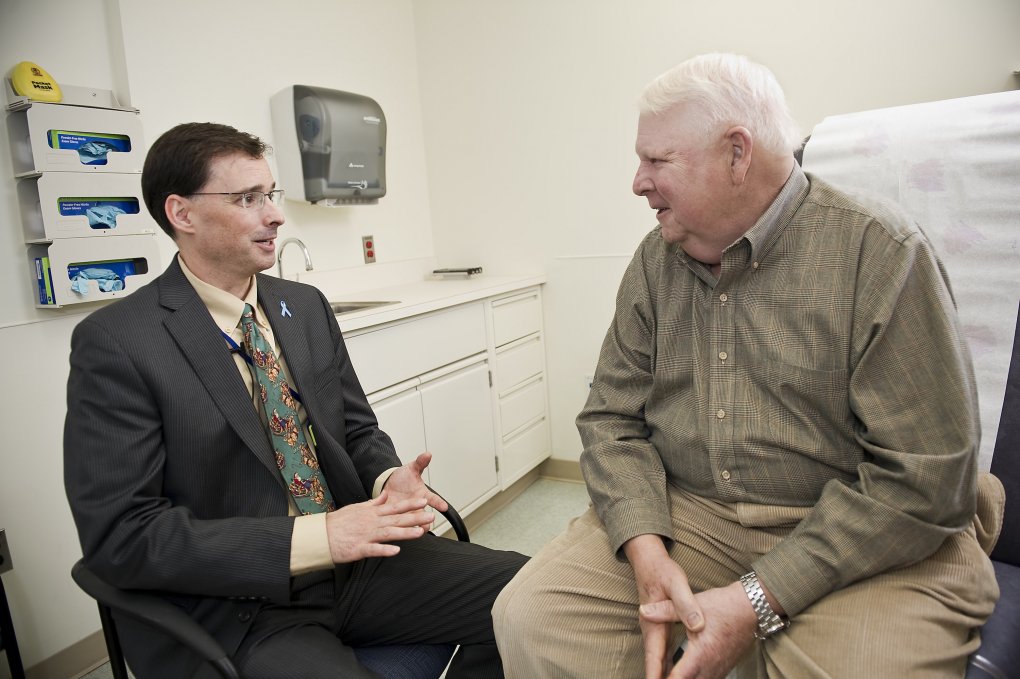Straight Out of Star Trek: The Biomedical Boon of Virtual Reality
Once confined to the realms of science fiction, virtual reality (VR) has crossed over into the real world in a wide array of fields, including scientific research and clinical medicine. In the IRP, several researchers are utilizing the cutting-edge technology in their efforts to improve human health.
Susan Persky, Ph.D., for instance, runs the Immersive Virtual Environment Test Unit, where she uses VR to simulate how genetic information might affect doctor-patient interactions and influence patients’ emotions, beliefs, and decisions. She has also put the technology to use studying the food choices of overweight and obese individuals by presenting them with a simulated buffet. Meanwhile, John Ostuni, Ph.D., explores how VR might help doctors diagnose or treat patients, such as by providing access to physical therapy without going to the hospital. And Victor Cid, M.S., creates virtual reality scenarios for the Disaster Information Management Research Center that can train emergency personnel how to more effectively respond to major crises.
On Friday, February 23, they joined several NIH colleagues for a Reddit “Ask Me Anything” (AMA) to answer questions from the public about how virtual reality might change the way medicine and research are practiced and ultimately make people’s lives better. Read on for some of the most interesting exchanges that took place or check out the full AMA on Reddit.

